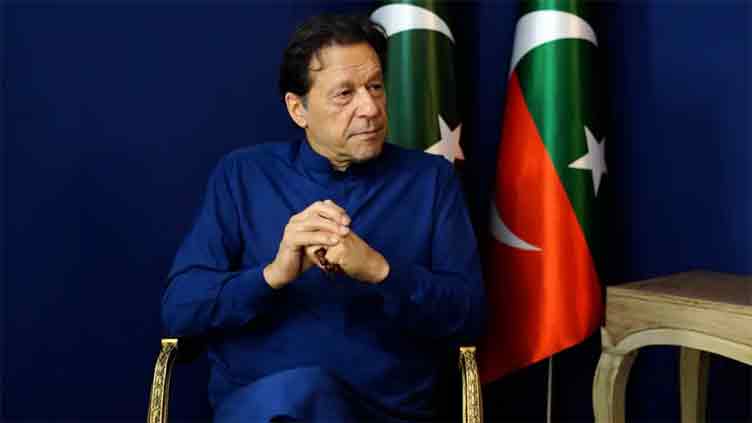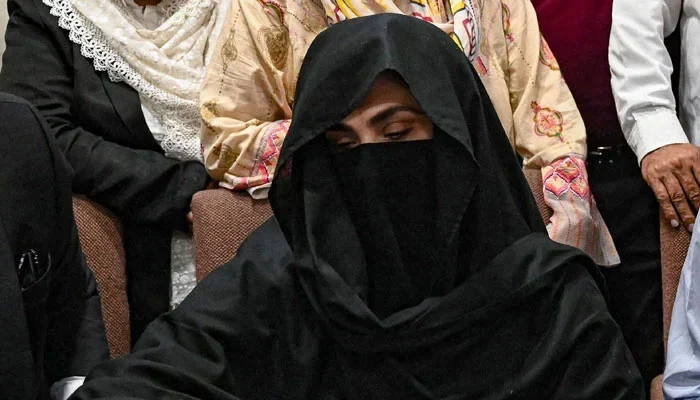- Judge says verdict on original case had already been announced.
- CJP declares ECP’s plea could not be accepted in current situation.
- Justice Ahsan says ECP doesn’t have authority to extend polls date.
ISLAMABAD: The Supreme Court on Thursday dismissed the Election Commission of Pakistan (ECP) plea seeking review of the apex court’s verdict on holding Punjab Assembly elections on May 14.
“The court will intervene whenever there is a Constitutional violation,” Chief Justice of Pakistan (CJP) Umar Ata Bandial remarked during the hearing of the case.
A three-member bench, headed by CJP Umar Ata Bandial, Justice Ijaz Ul Ahsan and Justice Munib Akhtar, observed that the top election organising body did not have Constitutional right to extend the poll date.
During the hearing, the ECP’s counsel Sajeel Swati maintained that they had received the detailed order regarding the Punjab polls two weeks ago therefore they wanted to submit some additional documents in the light of this verdict.
He requested the court to give him a week time to prepare his arguments.
To which, Justice Akhtar remarked that the matter before the bench was a review petition and a verdict on the election delay case had already been announced.
Justice Ahsan observed that the Constitution does not give the ECP the authority to extend the election date, while the SC has also ruled the same.
Before wrapping up the case, the CJP declared that the ECP’s plea could not be accepted in the current situation, so it is being dismissed.
“The court will intervene whenever there is a Constitutional violation,” Chief Justice Umar Ata Bandial said.
It may be noted that the initial bench formed to hear the election delay case comprised five members, including the existing bench members and Justice Amin-Ud-Din Khan, and Justice Jamal Khan Mandokhail.
However, it was reconstituted multiple times due to the recusal of the two judges and subsequent dissolution.
Later, the diminished three-member bench rejected Attorney General for Pakistan (AGP) Mansoor Usman Awan’s request for the formation of a full court to hear PTI’s case against ECP’s decision to defer the polls.
ECP’s review petition
In April this year, a three-member bench of the top court headed by CJP Bandial and comprising Justice Ijaz Ul Ahsan and Justice Munib Akhtar declared the ECP’s decision to hold polls on October 8 instead of April 30 “illegal” and ordered the electoral watchdog to hold polls in Punjab on May 14.
However, the Commission filed a plea requesting the SC to revisit its order upon the expiration of the May 14 deadline set by the top court.
In a 14-page petition, the top election organising authority said that the apex court should review its decision as the judiciary “doesn’t have the authority to give the date of elections”.
“Such powers exist elsewhere under the Constitution but certainly not lie in a Court of law,” the ECP had said, citing various legalities and reasons behind its statement.
The electoral body accused the apex court of disregarding its constitutional jurisdiction, emphasising that it assumed upon itself the role of a public body in giving a date; “thus intervention by the court is necessitated to correct an error which has effectively changed the settled constitutional jurisprudence of the country”.
In a bid to ensure elections on the prescribed date, the three-member bench of the Supreme Court on April 14 ordered the State Bank of Pakistan (SBP) to allocate and release Rs21 billion from the funds held with it to the ECP.
On April 18, the ECP informed the top court that it had not yet received Rs21 billion required for holding elections to the Punjab Assembly on May 14.
CJP Bandial, on April 20, had remarked that the apex court could make some room and change the date of elections if all the political parties evolve a consensus. Later, the top court clarified that negotiations between the ruling Pakistan Democratic Movement (PDM) and the Pakistan Tehreek-e-Insaf (PTI) to end the political deadlock on the general election’s timeframe were initiated in a volunteer capacity and that the top court did not issue any direction in this regard.
In a three-page verdict of the April 27 proceedings of the Punjab election delay case, the Supreme Court said its April 4 verdict directing the ECP to hold Punjab polls on May 14 “remained unchanged”.
However, despite multiple rounds of negotiations, both sides could not develop a consensus on the matter and on May 3, the PTI submitted a report to the top court on negotiations with the then PDM-led government, requesting the apex court to ensure implementation of its April 4 judgment regarding holding elections to the Punjab Assembly on May 14.
It may be noted that the Punjab Assembly was dissolved earlier this year in January, on the directives of Pakistan Tehreek-e-Insaf (PTI) Chairman Imran Khan in a bid to force the previous government in the Centre to hold snap polls.


 Latest News3 days ago
Latest News3 days ago
 Latest News3 days ago
Latest News3 days ago
 Latest News3 days ago
Latest News3 days ago
 Latest News3 days ago
Latest News3 days ago
 Uncategorized3 days ago
Uncategorized3 days ago
 Latest News3 days ago
Latest News3 days ago
 Latest News3 days ago
Latest News3 days ago
 Latest News3 days ago
Latest News3 days ago
























